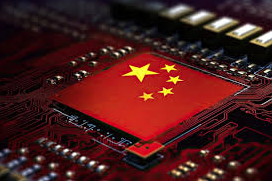
Jack Ma’s Firm Develops AI Models Using Domestic Semiconductors, Competing with Nvidia’s H800
Ant Group, the Chinese fintech giant backed by Jack Ma, has claimed a significant AI breakthrough by using domestically produced semiconductors, reportedly reducing training costs by 20%. The company’s AI models, trained with chips from Alibaba and Huawei, utilise the innovative mixture of experts (MoE) machine learning technique, yielding results comparable to Nvidia’s H800. These Nvidia chips are currently restricted from sale to China due to US export controls.
Although Ant Group still relies on Nvidia for some AI development, it has shifted more towards chips from Advanced Micro Devices (AMD) and local Chinese manufacturers for its latest models. According to sources, Ant’s AI models, Ling-Lite and Ling-Plus, have outperformed some of Meta’s models in certain Chinese-language benchmarks. The Ling-Lite model, with 16.8 billion parameters, even surpassed one of Meta’s Llama models.
The company has made these models open source, with Ling-Plus containing 290 billion parameters. For comparison, OpenAI’s GPT-4.5 has around 1.8 trillion parameters. Ant’s models are expected to be used in industrial AI applications, especially in sectors like healthcare and finance.
Training large language models (LLMs) traditionally requires expensive high-performance GPUs, often making it unaffordable for smaller firms. Ant’s approach, however, has reduced the costs involved in training AI models. The company claims it would typically cost around 6.35 million yuan (S$1.17 million) to train one trillion tokens using top-tier hardware, but with its optimised approach, this cost can be reduced to 5.1 million yuan, even with lower-spec hardware.
Ant also acknowledged the challenges encountered during training, where even minor changes to hardware or model structure could result in errors.
Bloomberg Intelligence analyst Robert Lea stated that Ant’s development highlights the rapid progress and growing innovation in China’s AI sector. If verified, these advancements could enable China to achieve self-sufficiency in AI, a significant milestone for the country.












